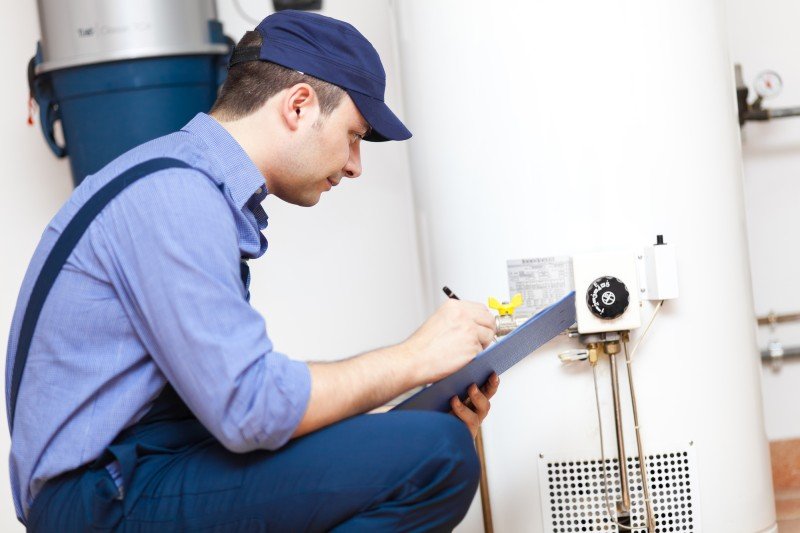Change Water Heater – Austin,TX
CALL FOR AN ESTIMATE
Should I flush a 20 year old water heater?
Flushing a 20-year-old water heater can help remove sediment buildup and improve its efficiency and performance, but it’s essential to consider the condition of the water heater before attempting to flush it. Here are some factors to consider:
1. Condition of the water heater: If the water heater is in good overall condition and has been well-maintained, flushing it may help extend its lifespan and improve its performance. However, if the water heater is showing signs of significant wear and deterioration, such as leaks, corrosion, or other issues, flushing it may not be advisable.
2. Sediment buildup: Over time, sediment can accumulate at the bottom of the water heater tank, reducing its efficiency and potentially causing damage to the heating element or tank. Flushing the water heater can help remove this sediment and restore its efficiency, but if the sediment buildup is severe, it may be challenging to fully clear it with flushing alone.
3. Risk of damage: Flushing an older water heater can pose risks, particularly if the tank is weakened or corroded. There is a possibility that flushing could dislodge debris or cause further damage to the tank, leading to leaks or other issues. It’s essential to proceed with caution and consider the potential risks before attempting to flush an older water heater.
4. Professional assessment: Before deciding whether to flush a 20-year-old water heater, it’s advisable to consult with a professional plumber. A plumber can inspect the water heater, assess its condition, and provide guidance on whether flushing is recommended based on the specific circumstances.
In summary, while flushing a 20-year-old water heater may help improve its performance, it’s essential to consider the condition of the water heater and the potential risks before attempting to flush it. Consulting with a professional plumber can help ensure that you make an informed decision and avoid causing further damage to the water heater. Moreover, professional a emergency plumber can provide invaluable guidance in handling offering swift solutions to mitigate any potential damage.



Plumber Near Me….
Request A Quote
We promise to get back to you as soon as possible.
What plumbing services do you offer?
DRAIN CLEANING SERVICES
WATER HEATER REPAIR /REPLACEMENT
TOILET REPLACEMENT
PLUMBING SERVICES
KITCHEN SINK REPLACEMENT
GARBAGE DISPOSAL REPAIR
RESIDENTIAL PLUMBING SERVICES
COMMERCIAL PLUMBING SERVICES
GARBAGE DISPOSAL REPLACEMENT
Schedule An Estimate
CALL NOW (512) 894-6169
What happens if you never flush your water heater?
If you never flush your water heater, several issues can arise over time due to sediment buildup and other factors:
1. Reduced efficiency: Sediment, minerals, and debris can accumulate at the bottom of the water heater tank over time. This buildup insulates the heating element from the water, reducing its efficiency and causing it to work harder to heat the water. As a result, the water heater consumes more energy and may lead to higher utility bills.
2. Decreased lifespan: Sediment buildup can accelerate corrosion inside the water heater tank, leading to premature deterioration and failure. The sediment can also settle on the bottom of the tank and cause it to overheat, potentially causing damage to the tank or other components.
3. Poor water quality: Sediment and debris in the water heater tank can affect the quality of the hot water, leading to issues such as foul odors, discolored water, or metallic tastes. This can be particularly noticeable when using hot water for bathing, cooking, or drinking.
4. Increased risk of leaks: Sediment buildup can weaken the bottom of the water heater tank and make it more prone to leaks. Over time, the pressure from the sediment and the expansion and contraction of the tank can cause small cracks or holes to develop, leading to water leaks and potential water damage to your home.
5. Safety hazards: In extreme cases, neglecting to flush your water heater can lead to safety hazards such as pressure buildup, overheating, or even tank failure. A malfunctioning water heater can pose risks such as scalding, flooding, or gas leaks (for gas water heaters).
In summary, neglecting to flush your water heater can lead to reduced efficiency, decreased lifespan, poor water quality, increased risk of leaks, and safety hazards. Regular maintenance, including flushing the water heater to remove sediment buildup, is essential to ensure optimal performance, efficiency, and safety. Regular maintenance, is crucial to prolonging the lifespan of your water heater and avoiding costly fix water heater or replacement water heater.
Can you flush a hot water heater without turning it off?
It’s generally not recommended to flush a hot water heater without turning it off first. Flushing a water heater involves draining the tank to remove sediment and debris that may have accumulated at the bottom. Flushing the tank while the water heater is still on can pose several risks:
1. Scalding: The water inside the tank can be extremely hot, especially if the water heater has been recently heating water. Flushing the tank while it’s still on increases the risk of coming into contact with scalding hot water, which can cause burns or other injuries.
2. Damage to heating elements: Flushing the tank while the water heater is still on can cause the heating elements to run dry, potentially damaging them. Running the heating elements without water to dissipate the heat can cause them to overheat and fail.
3. Pressure buildup: Flushing the tank while the water heater is still on can create pressure imbalances inside the tank, especially if the water is draining faster than it can be replenished. This can put stress on the tank and other components, potentially leading to leaks or other issues.
For safety reasons, it’s best to turn off the water heater and allow it to cool down before flushing the tank. This reduces the risk of scalding, prevents damage to the heating elements, and minimizes pressure buildup inside the tank. Additionally, be sure to follow proper safety precautions and procedures when flushing the water heater, and consider consulting with a plumber close to me if you’re unsure about the process.
Is Rheem or AO Smith a better water heater?
Here are some factors to consider when comparing Rheem and AO Smith water heaters:
1. Product range: Both Rheem and AO Smith offer a variety of water heater models, including traditional tank water heaters, tankless water heaters, heat pump water heaters, and more. Consider which type of water heater best suits your needs and compare the models offered by each manufacturer.
2. Energy efficiency: Look for energy-efficient models that can help lower your energy bills and reduce your environmental footprint. Both Rheem and AO Smith offer ENERGY STAR® certified water heaters and high-efficiency models designed to minimize energy consumption.
3. Warranty coverage: Check the warranty coverage offered by each manufacturer, including the duration of the warranty and what parts and repairs are covered. A longer warranty period can provide added peace of mind and protection against potential issues.
4. Durability and reliability: Consider the reputation of each manufacturer for product quality, durability, and reliability. Look for reviews and ratings from other customers to get an idea of the performance and longevity of the water heaters.
5. Installation and service: Consider factors such as installation requirements, availability of service technicians, and ease of obtaining replacement parts. Choose a manufacturer that offers reliable customer support and service to ensure a smooth installation process and prompt assistance if issues arise.
6. Price: Compare the prices of comparable models from Rheem and AO Smith to find the best value for your budget. Keep in mind that while upfront costs are important, it’s also essential to consider long-term operating costs and potential energy savings.
Ultimately, both Rheem and AO Smith are reputable brands known for producing high-quality water heaters. By comparing their products, warranties, energy efficiency, and other factors, you can make an informed decision based on your specific requirements and preferences. Additionally, consulting with a professional plumber can provide valuable guidance and recommendations based on their experience with different water heater brands and models.
About the City of Austin, TX
Apple Plumber and Water Heater Repair
5000 W Slaughter Ln, Austin, TX 78749
(737) 977-9963
Hours of Operation
Mon Open 24 hours
Tue Open 24 hours
Wed Open 24 hours
Thu Open 24 hours
Fri Open 24 hours
Sat Open 24 hours
Sun Open 24 hours
